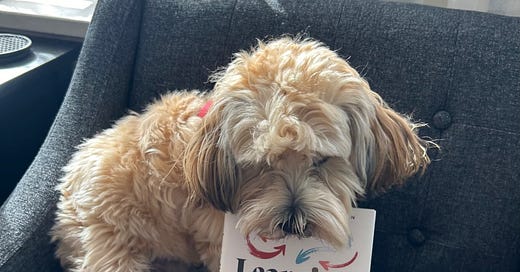As promised in last week’s post, today’s special edition of Some Assembly Required includes an excerpt from the preface of Learning to Disagree. The book is officially out today!
If you’ve enjoyed this newsletter, please consider picking up a copy of Learning to Disagree and reviewing it on Amazon, Goodreads, or both. In the meantime, enjoy the following preview.
From the preface of Learning to Disagree:
The book you are about to read takes you through a year of my life as a law professor. But this isn’t just a book about law or legal education. It’s about finding nuance and empathy in some of our country’s most divisive issues. It’s about holding together clarity and ambiguity, tolerance and judgment, confidence and uncertainty. It’s about what each of us confronts in our daily encounters with beliefs and viewpoints we find unfamiliar, off-putting, or even dangerous.
This book won’t tell you what to believe, but it aims to change the way you engage with disagreement. The stories and vignettes are meant to complicate your assumptions, introduce arguments from “the other side,” and illustrate how people can recognize good faith disagreements without surrendering their most strongly held beliefs. Millions of Americans think that politics and people are more complicated than the talking points of partisans. Learning to Disagree gives voice to the tone and substance of the kinds of conversations most Americans actually want to have.
Each chapter asks a question that emerges through a mosaic of experiences inside and outside the classroom—the cases and concepts I teach my students, my interactions with colleagues, and various life encounters outside of my day job. The classroom stories draw from my twelve years of researching and teaching about criminal law, law and religion, and the First Amendment. The extracurricular stories occurred over these same years but draw from my everyday interactions with colleagues, neighbors, and friends. In this sense, this book explores not only the challenges of legal education but also the challenges all of us face in our daily lives—the complexity of people, the importance of compassion, and the pitfalls and possibilities of living in a diverse society.
The stories are true, though in reality they unfolded across several different years. Most of the characters are composites; the coffee shops are real. The stories raise difficult issues, like how we punish people who have committed unspeakable crimes, how we navigate religious diversity, and whether forgiveness is possible. They also raise fundamentally human inquiries, like searching for empathy, struggling to discern what’s fair, and asking what happens when compromise isn’t possible.
You can use the reflection guide at the end of this book to explore how these inquiries apply to your own life. You might work through the guide with a friend or a group of friends. The questions are meant to spark conversations more than point you toward answers. I hope you will read slowly and linger on the stories that challenge you and the claims that irritate you.
More importantly, I hope this book provides ideas and tools to navigate the differences and disagreements you encounter in our world. That’s part of the goal of legal education. And while law school isn’t for everyone, you may find that the lessons in this book have a surprising relevance to your own life.






My copy should arrive today! Excited to read this — once my 1L spring finals are done in the second week of May.
I've ordered my copy from Byron Borger at Hearts & Minds Bookstore!
Hey, John, we would be honored if you joined us on the Reintegrate Podcast to discuss the book. https://bobrobinsonre.substack.com/t/podcast
https://www.re-integrate.org/podcast/
I'm emailing you through your website.
-Bob